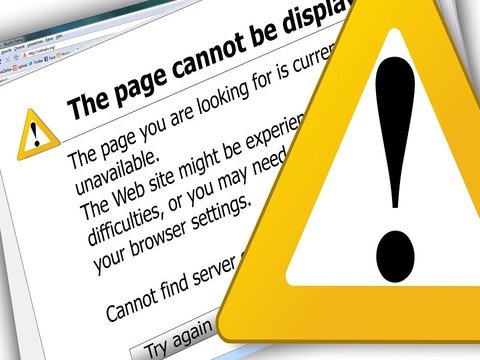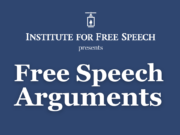A Pew Research Center survey conducted this summer revealed that 48% of the country believes the government should step in to restrict false information online. The rest of the headline above is either misinformation or hyperbole, depending on which half you ask.
There are countless issues with combating “misinformation,” and social media companies haven’t failed for lack of trying. Misinformation is nearly impossible to define and police neutrally, and decisions made to that end are extremely controversial. But rather than recount the debate about whether a crackdown on misinformation is necessary or desirable, let’s assume for the moment that it is. Should the government be charged with that responsibility? The short answer is no. And the long one…
Americans usually know better than to trust the government. Another Pew Research Center survey from this May shows only a quarter of Americans (24%) place significant trust in government to do the right thing “just about always or most of the time.” But twice that figure believe the government would prove altruistic when making rules for what constitutes truth online?
It wouldn’t. The power to classify speech we disagree with as “misinformation” that needs to be eliminated is an invitation to silence the political opposition. “Misinformation” is primarily a political pejorative – that’s just how we use it. We don’t talk of people spreading “misinformation” that Kia is a more reliable automotive company than Subaru. That’s called having an opinion about cars. But in political debates, dissenters are easily cast as purveyors of misinformation who refuse to operate within the realm of fact. The regulation of misinformation would be inherently political and partisan regardless of who calls the shots. In the hands of politicians, this power would be used opportunistically by the governing party to delegitimize criticism, impart their now-irrefutable views, and protect their own authority.
At least when individual companies impose their own standards, competitors can respond. Users can find somewhere else to go. Sending each political side off into their own echo chamber has downsides, but at least the speech is permitted to exist in some online space.
That’s not good enough for those championing blanket censorship of misinformation online. “Misinformation” isn’t simply stuff they wish was said elsewhere. It’s speech that’s deemed too dangerous to be heard at all. Government must do the job the individual companies can’t, they argue.
But crucially, that’s only appetizing while you’re on the winning side of things. If political power shifts the opposite direction, the body of permissible speech online will follow. A system that sounds appropriate under President Biden might not have sounded so appealing under President Trump, or vice versa. Whatever federal mechanisms are devised to confront misinformation, they won’t follow our preferred politicians out the door.
And it’s an untenable regime. How are internet speakers to make sense of guidelines that change at the whim of those currently in power? Facilitating productive political communication online would be universally frustrating under such terms.
Any hope that Congress would require neutral, bipartisan policing of online misinformation is wishful thinking. We can see many in Congress care very little for neutral speech-policing by looking at how they treat the bipartisan Federal Election Commission. The new “Freedom to Vote Act,” just like its failed predecessors H.R. 1 and S. 1, would undermine even-handedness at the FEC and open the door to targeted enforcement.
Insofar as misinformation is a problem, free speech is the solution. Plenty can be said about the constitutional problems with government attempting to censor vicariously through private companies, but it’s equally as important to remember the practical concerns. Namely, that government regulation of misinformation online would be good for exactly no one in the long term.














